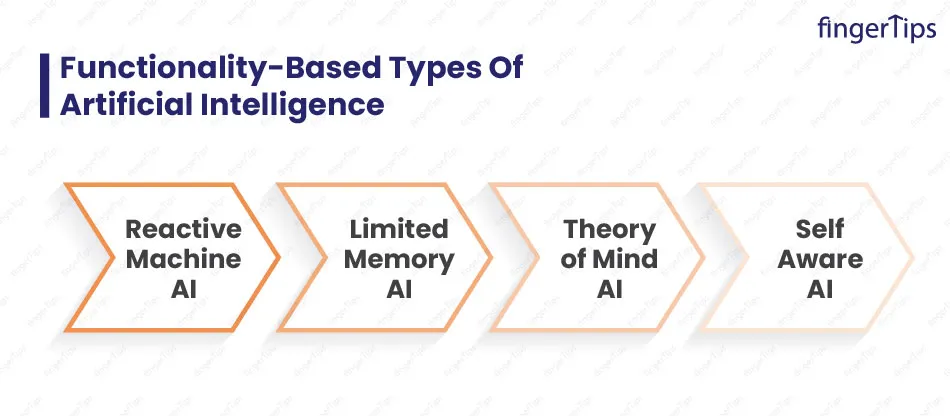In today's world, almost everyone is curious about what AI can do. Even those who may not fully understand the concept are benefiting from AI technology in their daily lives. If you're interested in a career in AI, it's important to go beyond basic updates and learn about the different types of AI. This blog will provide insights into what AI is, the various types of AI, and more. Let's dive into the blog.
What Is AI?
AI, or Artificial Intelligence, is the process of training machines with vast amounts of data to mimic the human brain's abilities. It encompasses various subfields like computer vision, natural language processing, machine learning, and robotics. The ultimate goal of AI is to create intelligent machines capable of performing tasks that typically require human intellect, such as understanding natural language, recognizing objects in images, making decisions, and solving complex problems.
AI finds applications in sectors like healthcare, banking, transportation, and entertainment. By automating tedious tasks, enhancing decision-making processes, and introducing new possibilities, AI has the potential to revolutionize numerous industries.
Types of AI
Did you know there are different types of AI? They can be broadly classified into capability-based and functionality-based types.
Capability-Based Types Of Artificial Intelligence

This category includes three types: Narrow AI, General AI, and Super AI.
1. Narrow AI
Also known as weak AI, Narrow AI is designed to perform specific tasks with limited capabilities. These AI algorithms analyze data and make conclusions or predictions using predefined rules and algorithms within their designated domain. They excel in tasks involving data analysis, pattern recognition, and repetitive actions. However, they cannot transfer knowledge or skills to new situations beyond their programmed limits. Voice assistants like Siri fall under this category.
2. General AI
On the contrary, General AI (AGI) aims to mimic human intelligence across various activities and domains. AGI systems are equipped with cognitive, logical, problem-solving, and adaptive traits similar to humans. The development of AGI raises considerations like morality, security, and societal impact, necessitating responsible and ethical implementation.
3. Super AI
Currently hypothetical, Super AI is envisioned as AI systems that outperform humans in various tasks. It is believed that Super AI would possess superfast learning capabilities, excelling in puzzles and decision-making. However, this concept also raises concerns about AI potentially taking over human jobs and control. Nonetheless, achieving Super AI remains a distant possibility.
Functionality-Based Types Of Artificial Intelligence

This category includes AI types based on their functions.
1. Reactive Machine AI
Reactive machines operate solely on present data and do not store or utilize past data. They are programmed to perform specific tasks and cannot operate beyond their designated functions. Reactive machines find applications in AI, robotics, control systems, and other domains where quick thinking and adaptability to dynamic conditions are essential.
2. Limited Memory AI
Limited Memory AI can utilize past data for calculated decisions but possesses short-term memory. It can process real-time sensor data and make rapid judgments based on it but cannot retain the data beyond a certain limit. An example of Limited Memory AI is self-driving cars.
3. Theory of Mind AI
An advanced type of AI, Theory of Mind AI aims to enable machines to understand human emotions and mental states. This AI can infer people's mental states based on their behavior.
4. Self-Aware AI
Another theoretical concept, Self-Aware AI, would have its own knowledge and emotions, potentially surpassing human intelligence.
Conclusion
In conclusion, the study of artificial intelligence involves various AI systems, each tailored to specific problems and goals. Understanding the different types of AI is crucial for developing intelligent systems that can adapt to diverse circumstances and meet specific requirements. Leveraging the strengths of various AI types can lead to more complex and innovative applications in fields like robotics, autonomous vehicles, virtual assistants, and beyond, ultimately enhancing human capabilities.
By exploring the possibilities of these AI types responsibly, we can create AI systems that truly augment and complement human skills. Enrolling in a Data Science & AI program can be a great step towards becoming an AI expert and exploring the limitless potential of AI.







